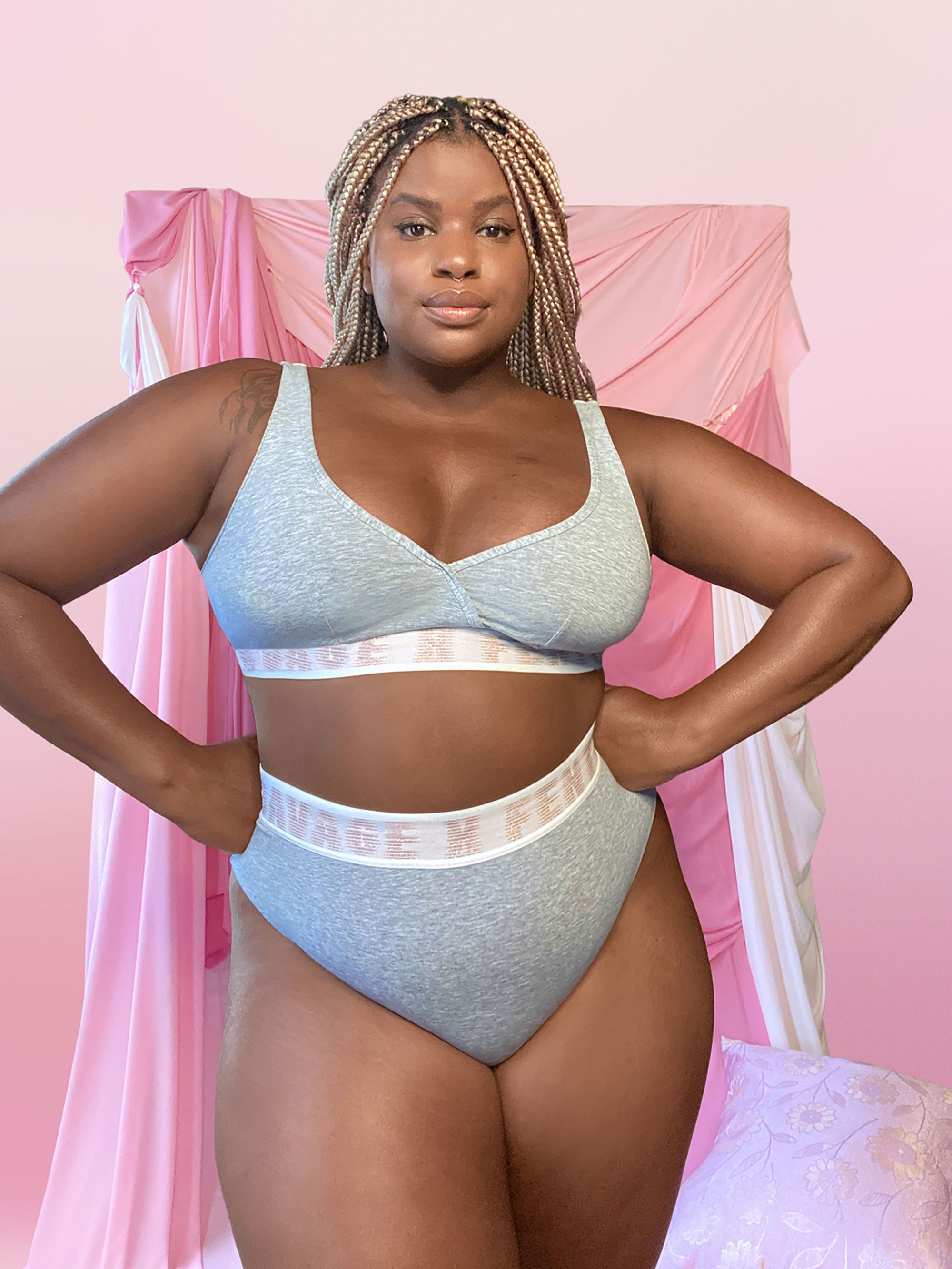Rihanna is using her latest Savage X Fenty campaign to shine a spotlight on Black breast cancer survivors.
In support of Breast Cancer Awareness Month, the singer’s lingerie brand asked three “survivors and thrivers” to model new styles from a capsule collection that will directly benefit the Clara Lionel Foundation, a charity founded by Rihanna in 2012. A press statement said that Savage X Fenty will donate a portion of the proceeds – up to $250,000 in total – to help the organization fund cancer research and support for Black people diagnosed with the disease.
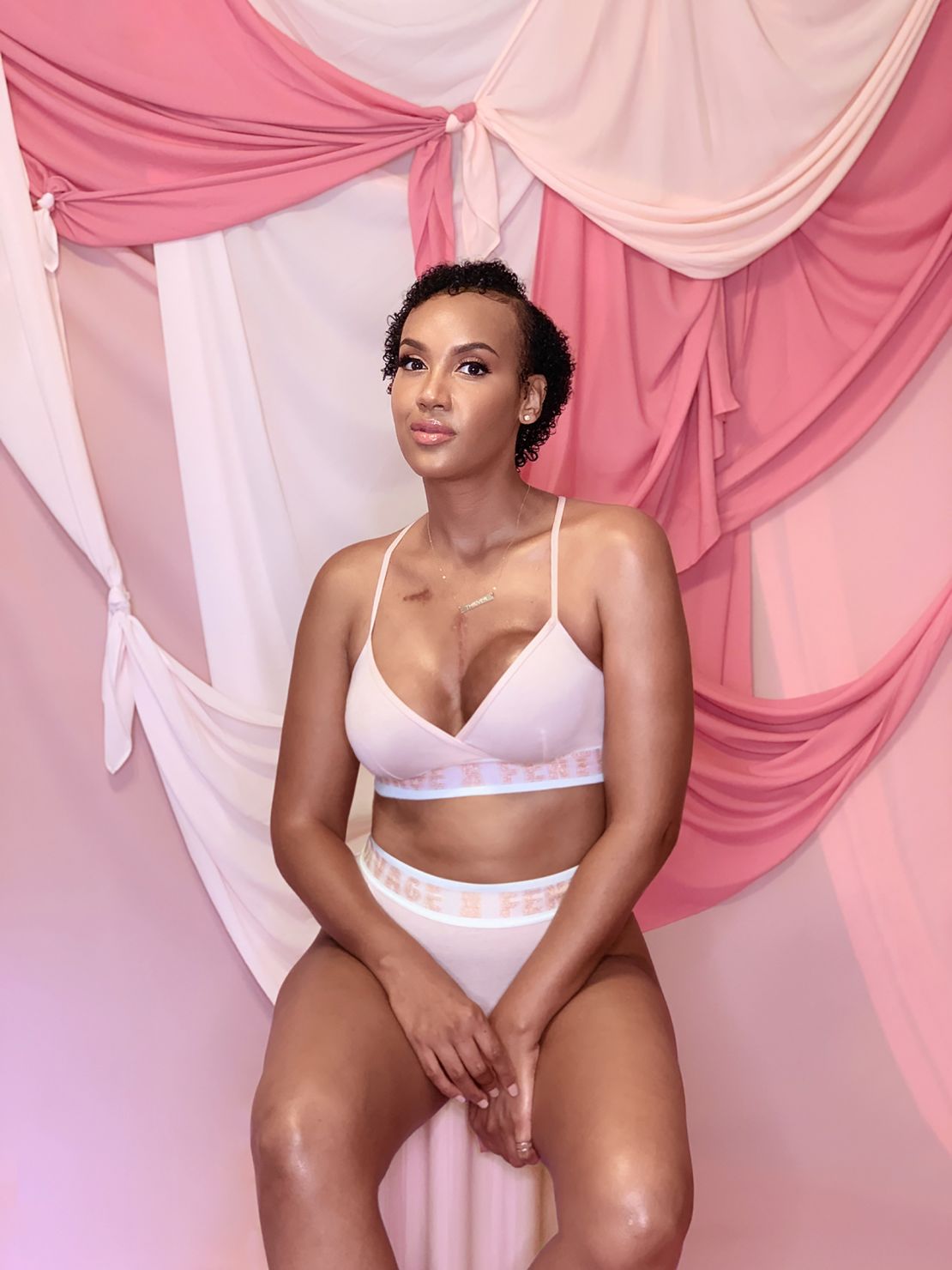
The campaign photographs feature Cayatanita Leiva and Ericka Hart, both 34, and Nykia McKenzie, 26, wearing the collection’s sporty new styles against draped pink fabric. Each model had a hand in how they were presented, either taking the pictures themselves or with the help of a loved one.
Hart, who posed in a gray bralette and panty set, was diagnosed with two types of breast cancer at once: HER2-positive and triple-negative. The model credited the Black femme and queer communities with being a source of support.
“The Savage X Fenty campaign was affirming of my experience as not just a breast cancer survivor but all of my intersections of identity as a Black, queer, non-binary femme,” Hart said in an email interview.
“Many cancer campaigns focus on one aspect, your chronic illness but not how your various identities play a role in how you navigate cancer … I also loved that the campaign didn’t focus on poses that focused on strength as the sole image for living with breast cancer, but rather is just showcasing people who want to share their experience to make a difference for someone else.”
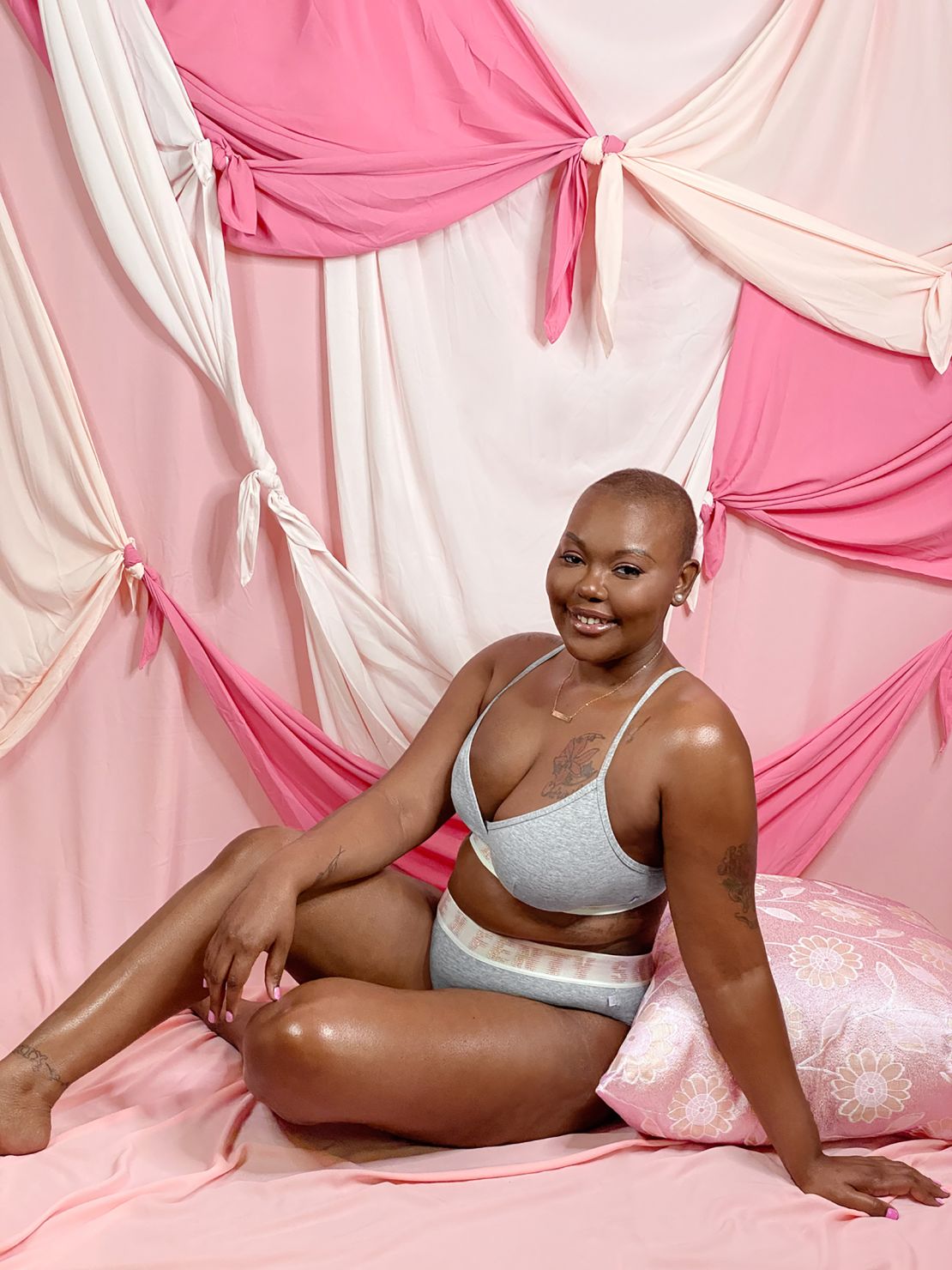
Rihanna has focused on Savage X Fenty’s inclusive appeal since launching the lingerie brand, a follow up to Fenty Beauty, in 2018. The product range caters to a variety of “nude” skin tones, and offers a wide range of sizes. Her two runway shows to date, both held at recent editions of New York Fashion Week, grabbed attention for their theatrical performances and representation of diverse body types, ethnicities and genders, in stark contrast to the kind of lingerie shows the industry is accustomed to.
“My vision for the Savage X brand has always been having women feel confident and expressing themselves,” she said earlier this year, in a behind-the-scenes video following the second of her brand’s runway shows.
A striking disparity
As well as offering visibility to three individual Black breast cancer survivors, the campaign also brings attention to what it calls “unfair disparities” in the US health care system, due to factors like age and race.
A 2012 report from the Centers for Disease Control and Prevention, based on data from 2005-2009, revealed that the death rate for African-American women death rate was 41% higher than that of White women, despite fewer cases. A study published four years later found the gap had lessened for younger Black women, but not for those over 50.
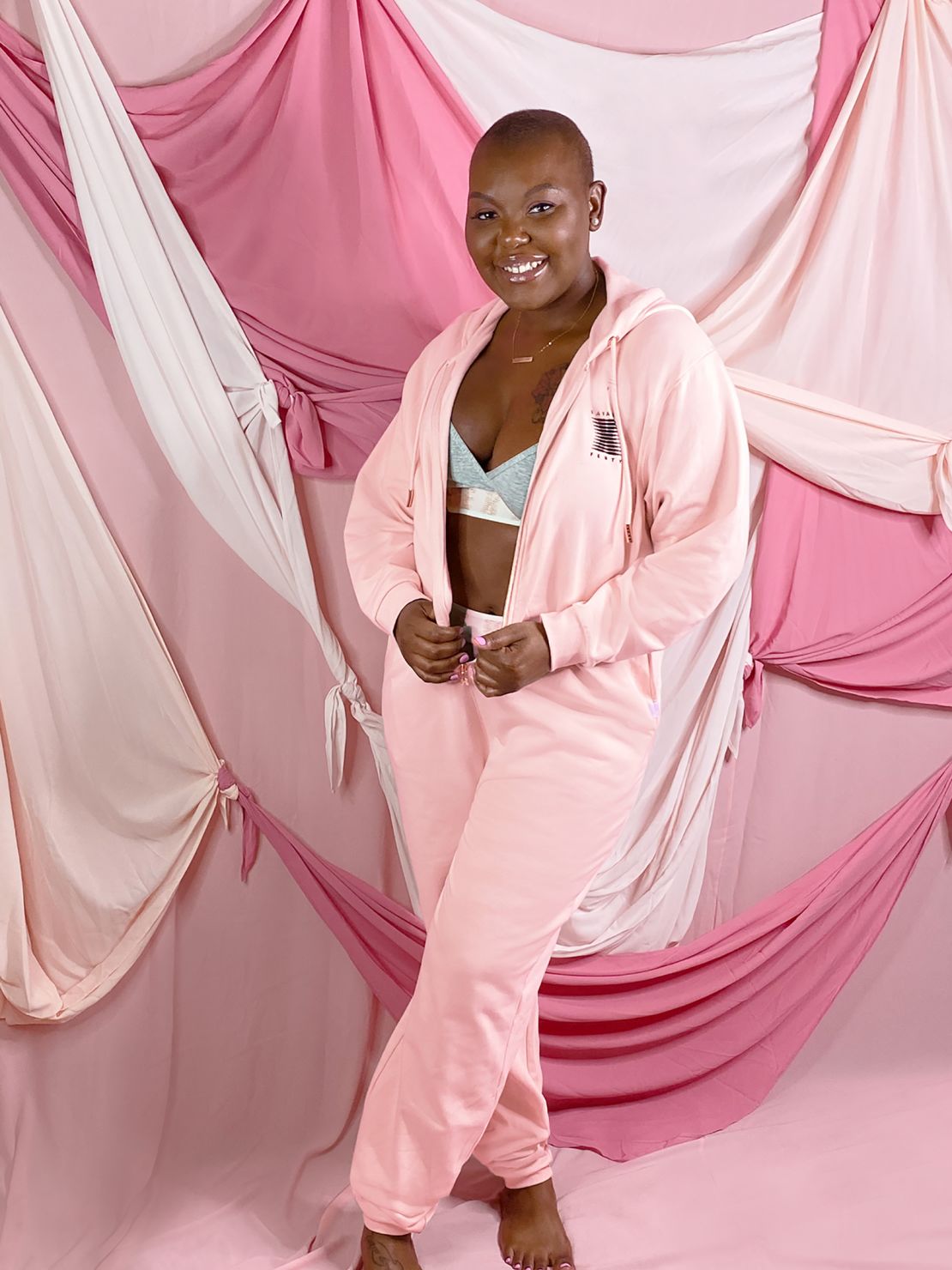
Model Leiva, who also appears in the Savage X Fenty’s second runway show was diagnosed with triple-negative cancer in 2018.
“What was … great was having to bring things to light and to share my personal journey,” she said over email, adding that the campaign spoke about “Black and brown concerns in the health care system and how there is a need for more representation in our communities.”
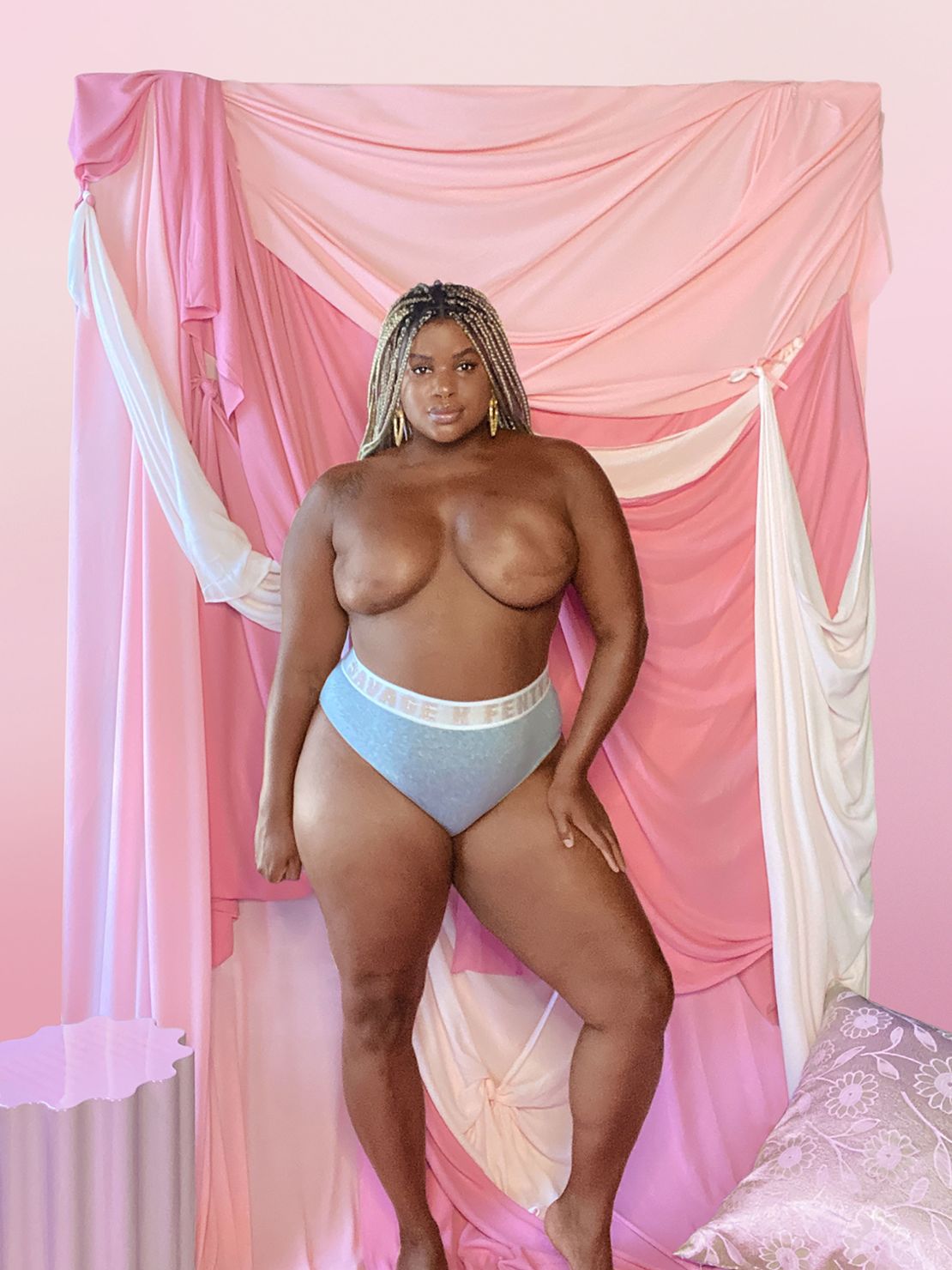
McKenzie, who found a lump in her breast last June, said she was misdiagnosed twice before finally receiving treatment by a third doctor. “By March, my breast was the size of a mini watermelon. At that point, I knew what was going on,” she said in a video accompanying the campaign.
“Knowing that these images will be seen worldwide means everything to me, mainly because I know now my story is being heard and that my storm was always bigger than me because the triumph is even bigger,” she added in an email interview. “I know now that black women will be heard in regards to our health and our healing. I hope these images convey to you all that there’s work to do and that starts with listening to young women who look like me.”
